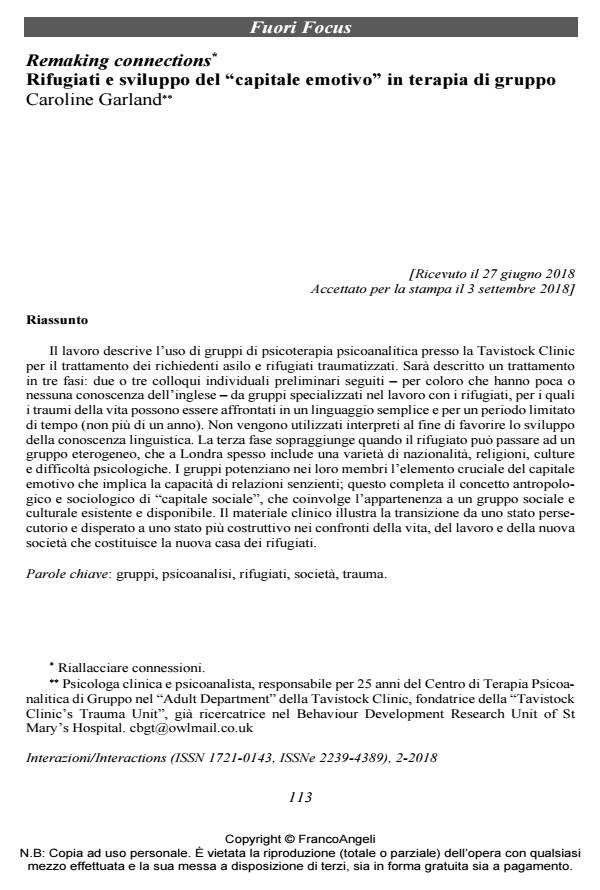Remaking connections. Refugees and the development of "emotional capital" in therapy groups
Journal title INTERAZIONI
Author/s Caroline Garland
Publishing Year 2018 Issue 2018/2
Language Italian Pages 17 P. 113-129 File size 188 KB
DOI 10.3280/INT2018-002009
DOI is like a bar code for intellectual property: to have more infomation
click here
Below, you can see the article first page
If you want to buy this article in PDF format, you can do it, following the instructions to buy download credits

FrancoAngeli is member of Publishers International Linking Association, Inc (PILA), a not-for-profit association which run the CrossRef service enabling links to and from online scholarly content.
The paper describes the Tavistock Clinic’s use of psychoanalytic therapy groups for the treatment of traumatised refugees and asylum-seekers. A three-stage treatment is outlined: 2 or 3 preliminary individual interviews are followed ‒ for those who have little or no English ‒ by Specialist Refugees’Group, in which the traumas of life can be addressed in simple language, for a limited period of time (not more than one year). Translators are not used, in order to foster language-development. The third stage arrives when the refugee can move to a heterogeneous out-patient group which, in London, often includes a variety of nationalities, religions, cultures and psychological difficulties. Groups foster in their members the crucial element of "emotional capital", implying the capacity for sentient relationships; it thus complements the sociological and anthropological concept of "social capital", which involves belonging to an established and available social and cultural grouping. Clinical material illustrates the shift from a desperate and persecuted state to a more workable stance towards life, work, and the new society that constitutes the refugees’ new home.
Keywords: Groups, psychoanalysis, refugees, society, trauma.
Caroline Garland, Remaking connections. Rifugiati e sviluppo del "capitale emotivo" in terapia di gruppo in "INTERAZIONI" 2/2018, pp 113-129, DOI: 10.3280/INT2018-002009